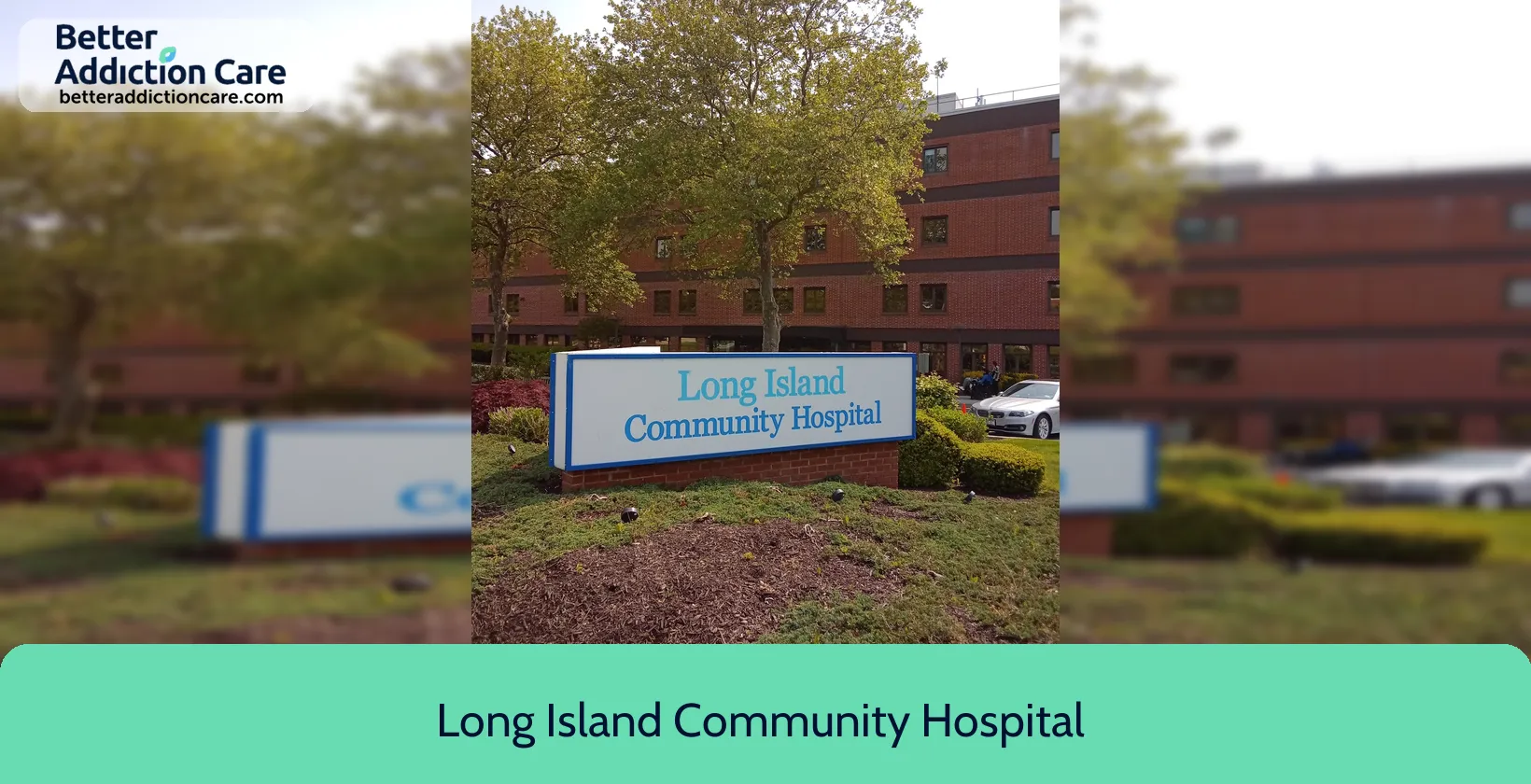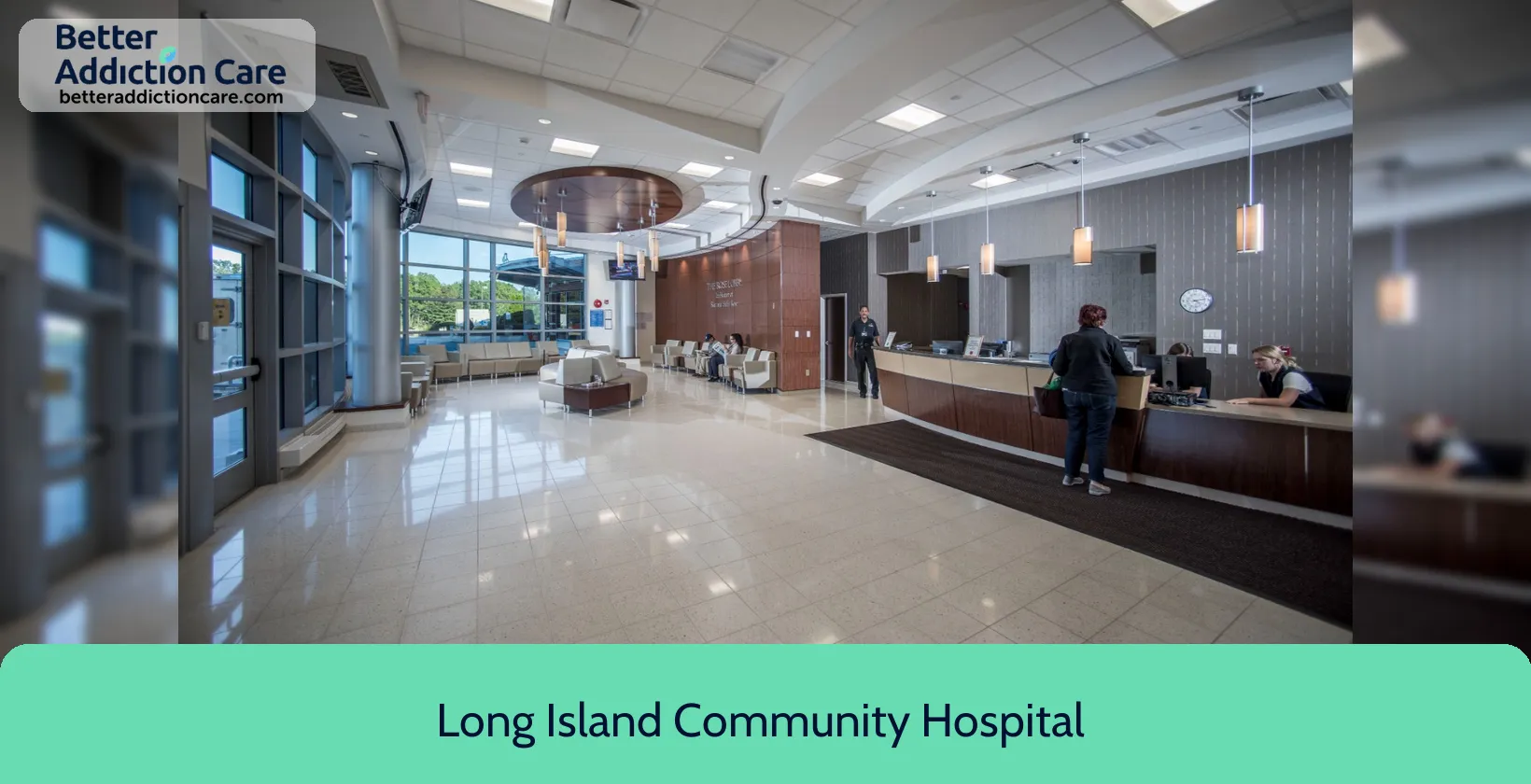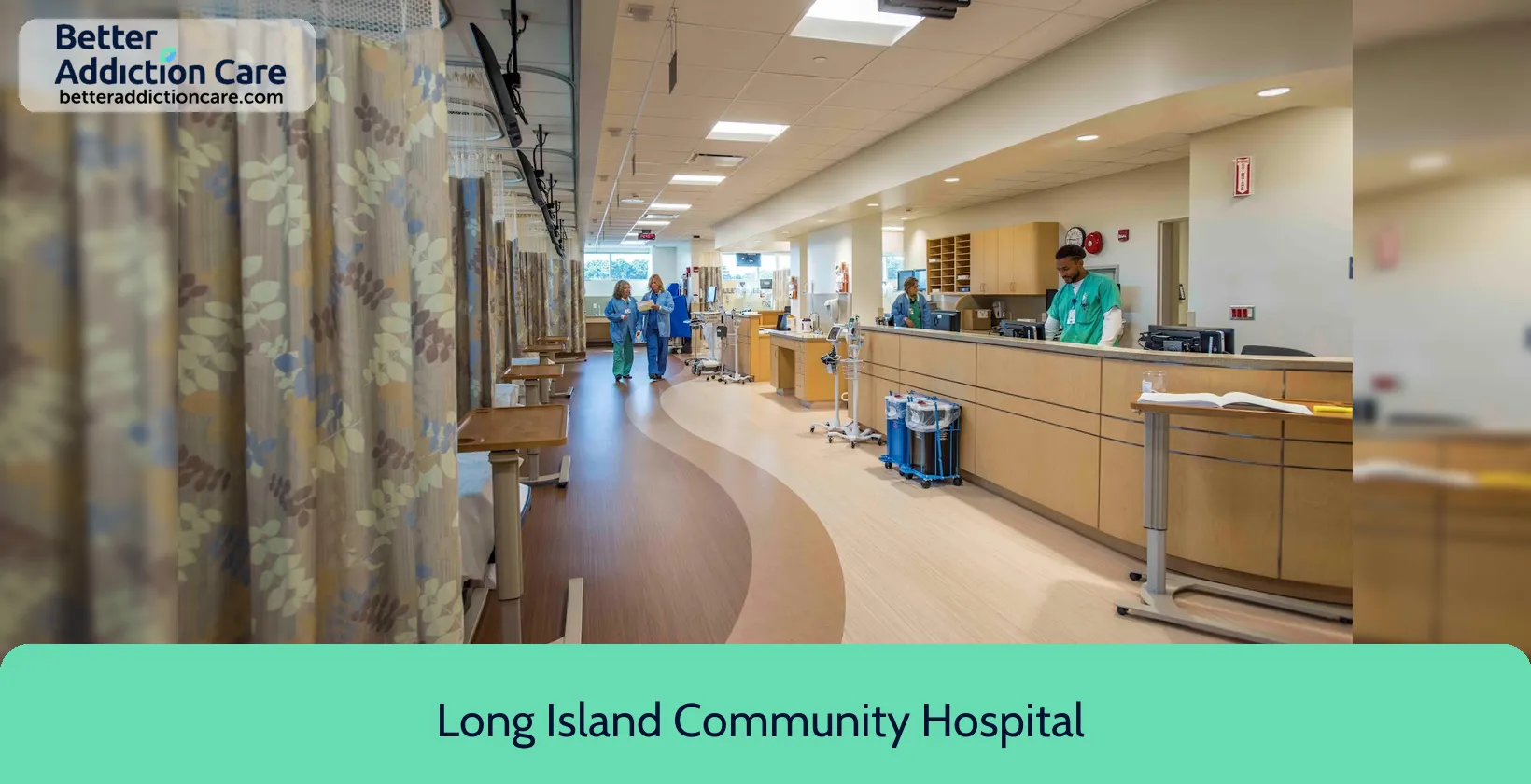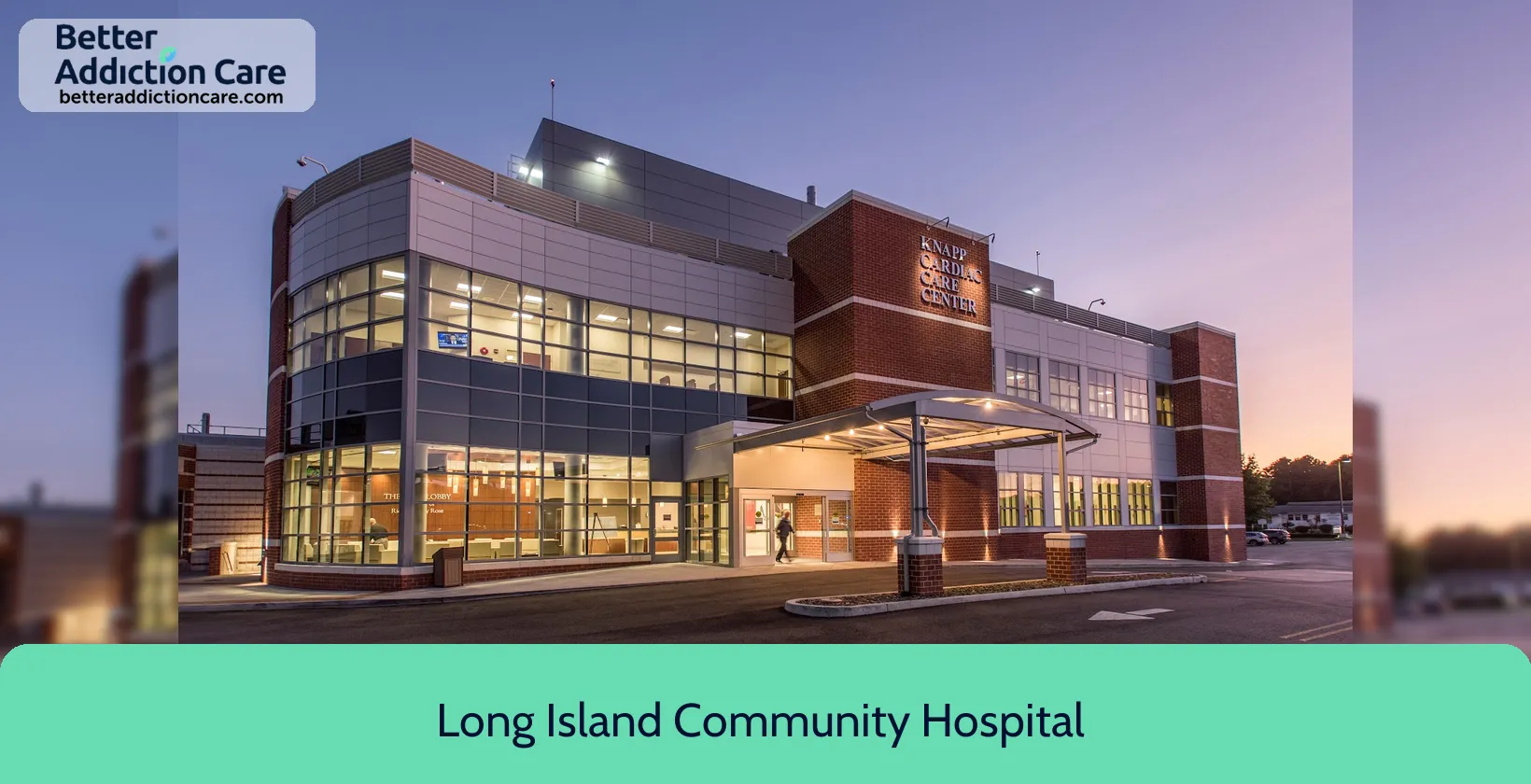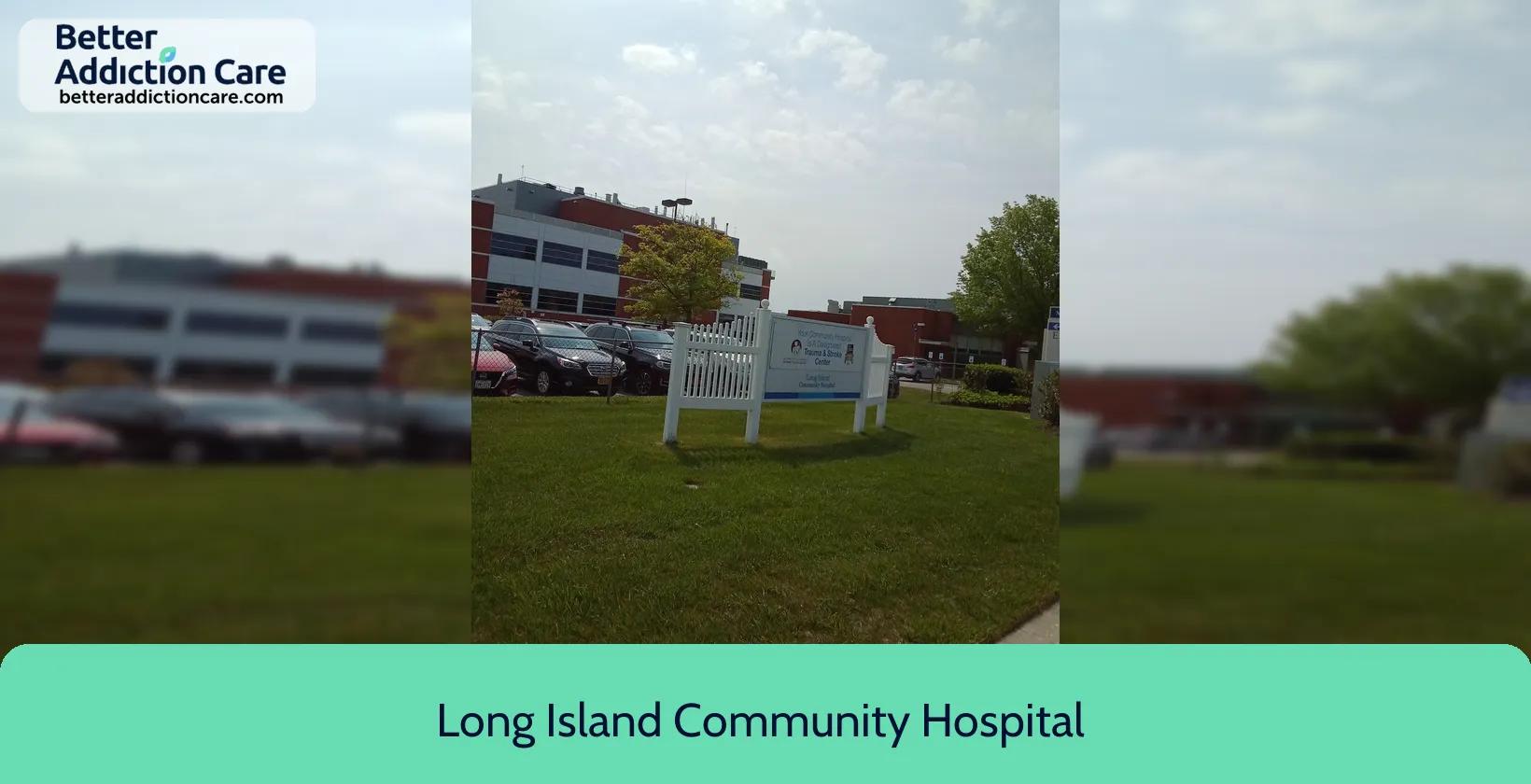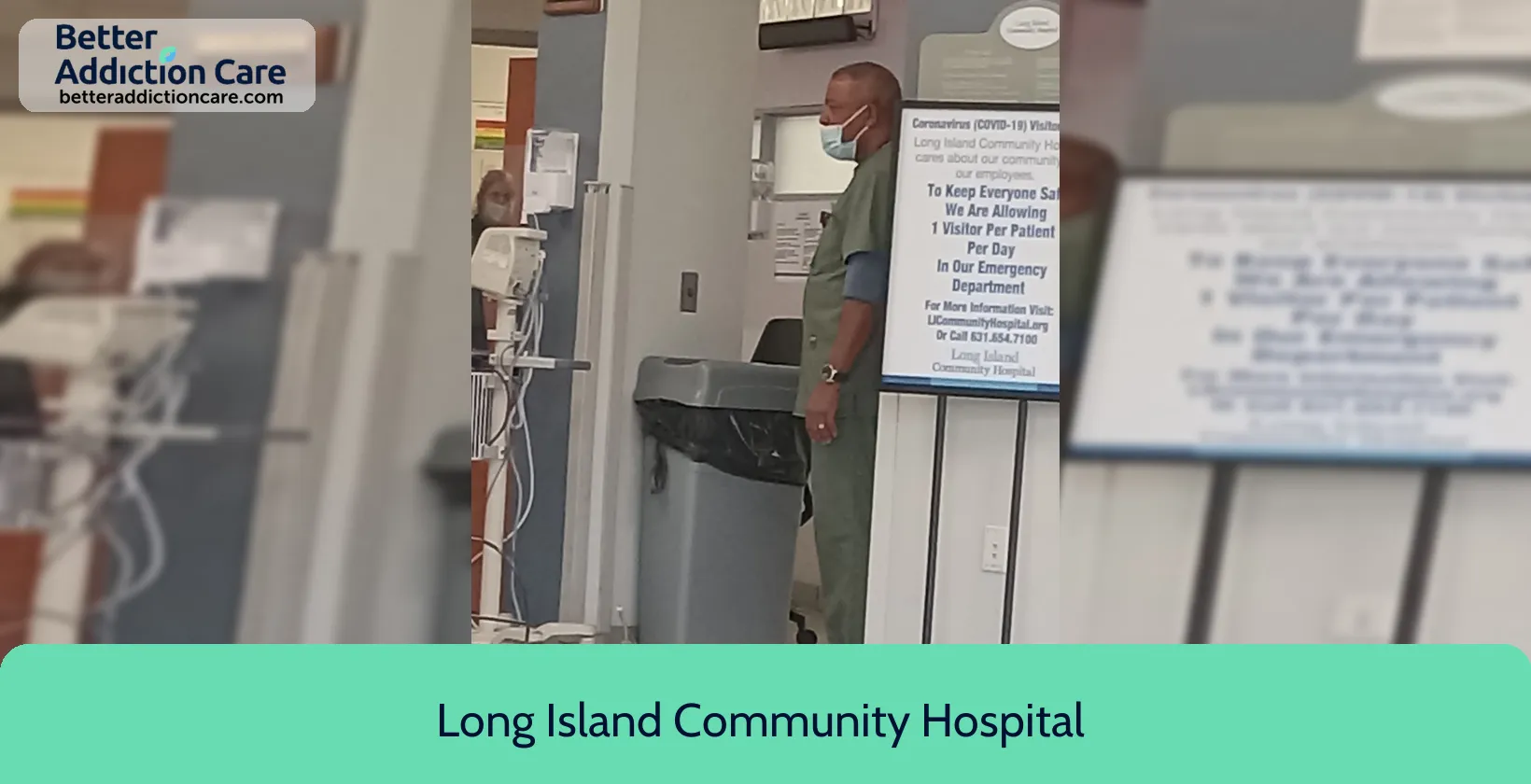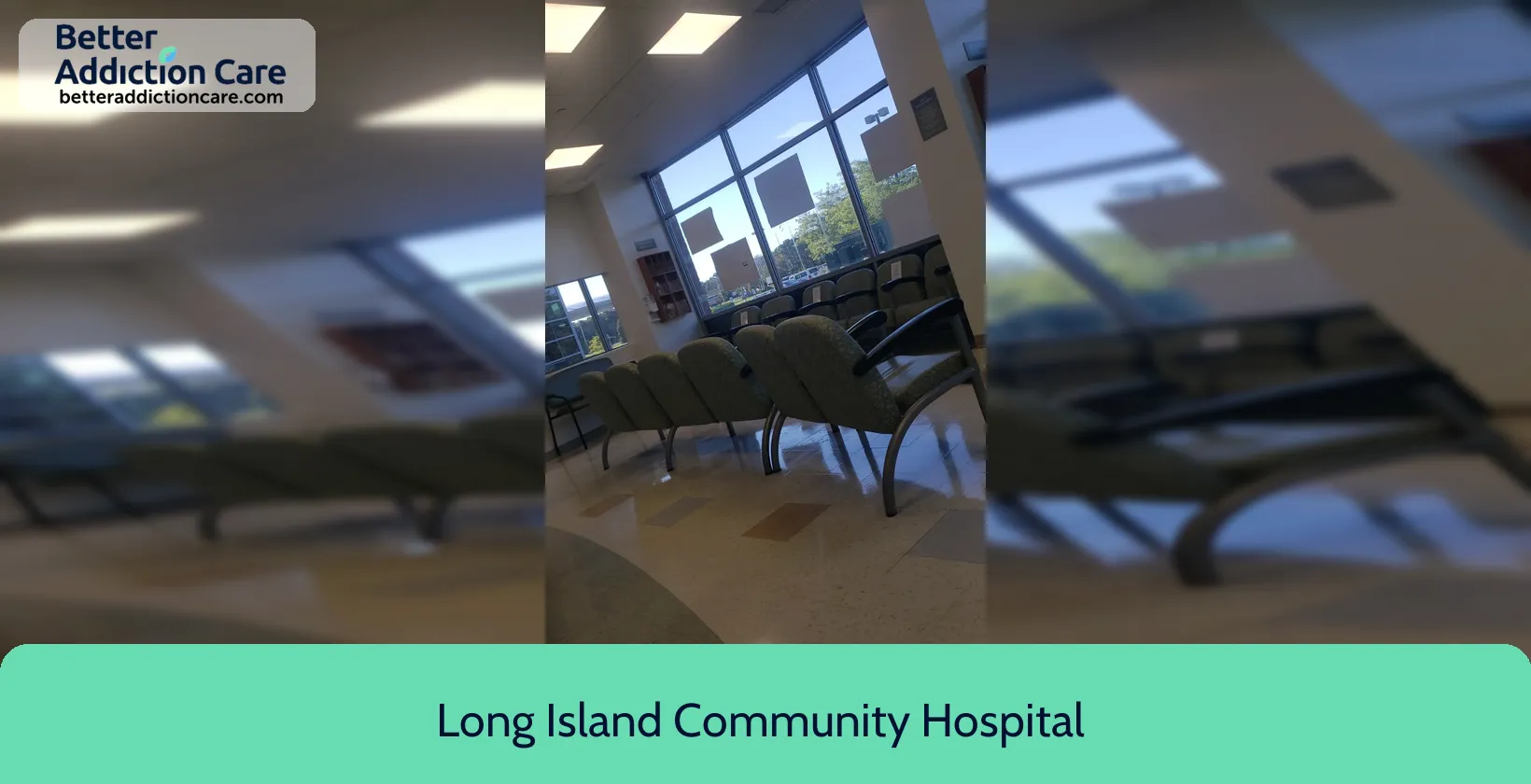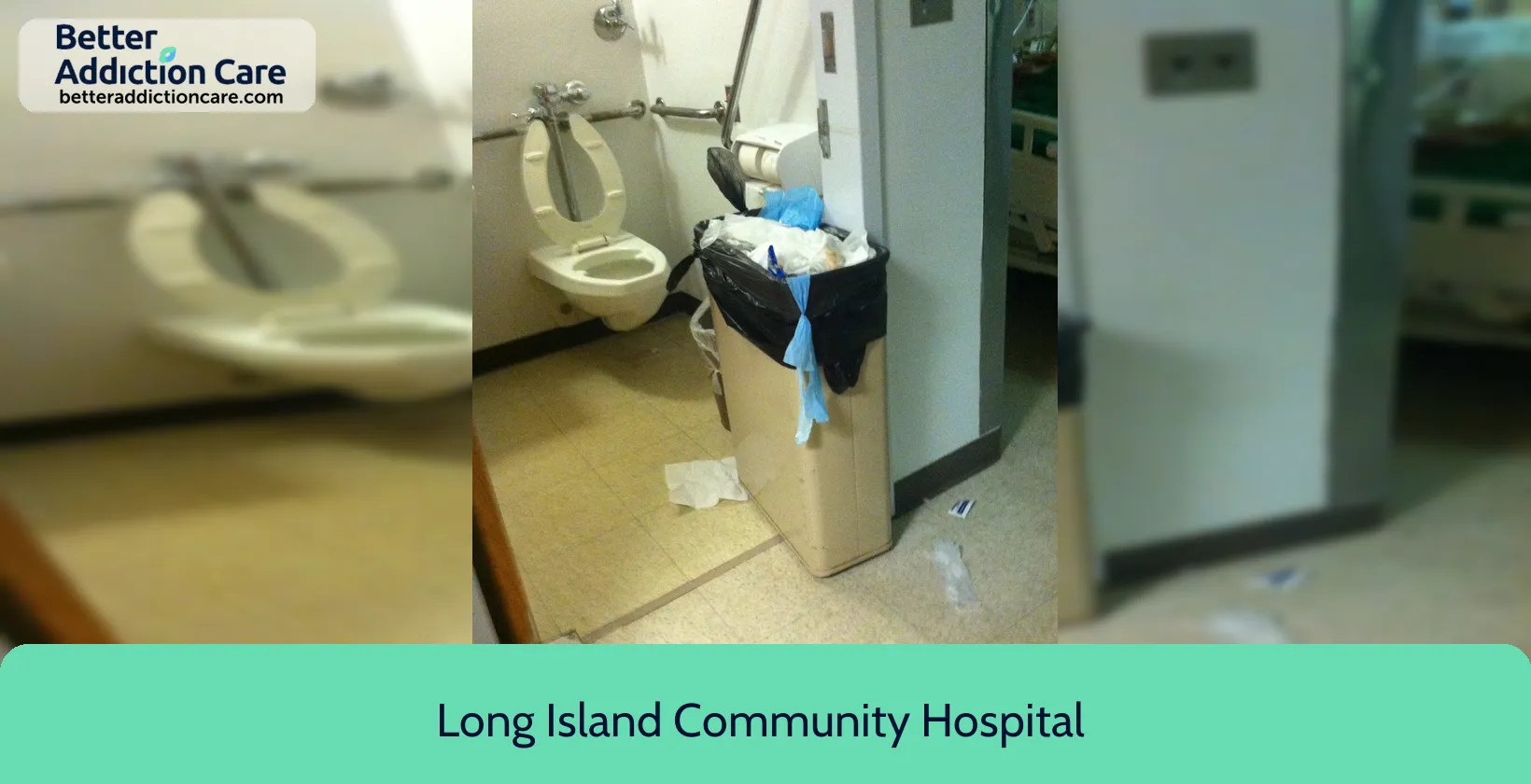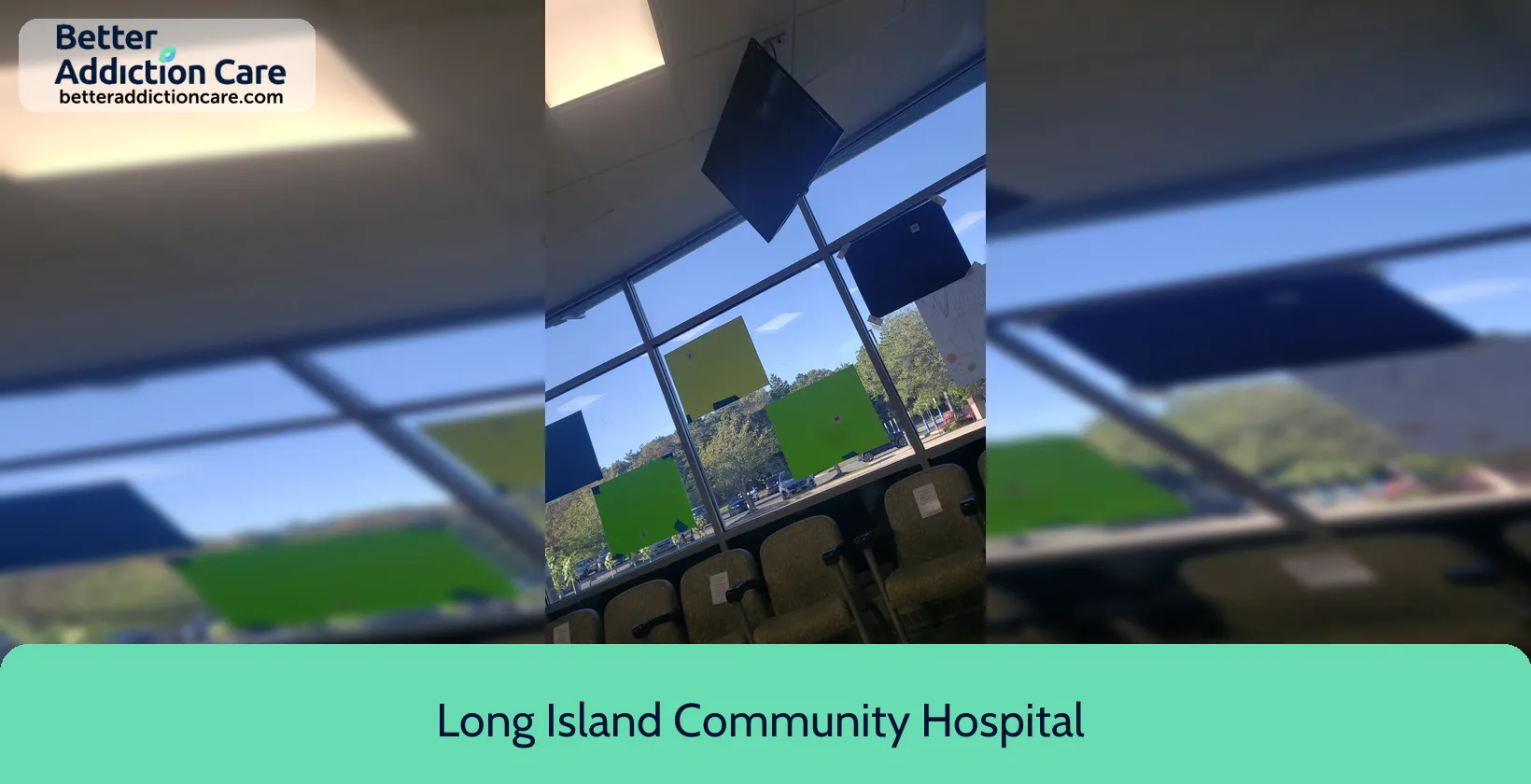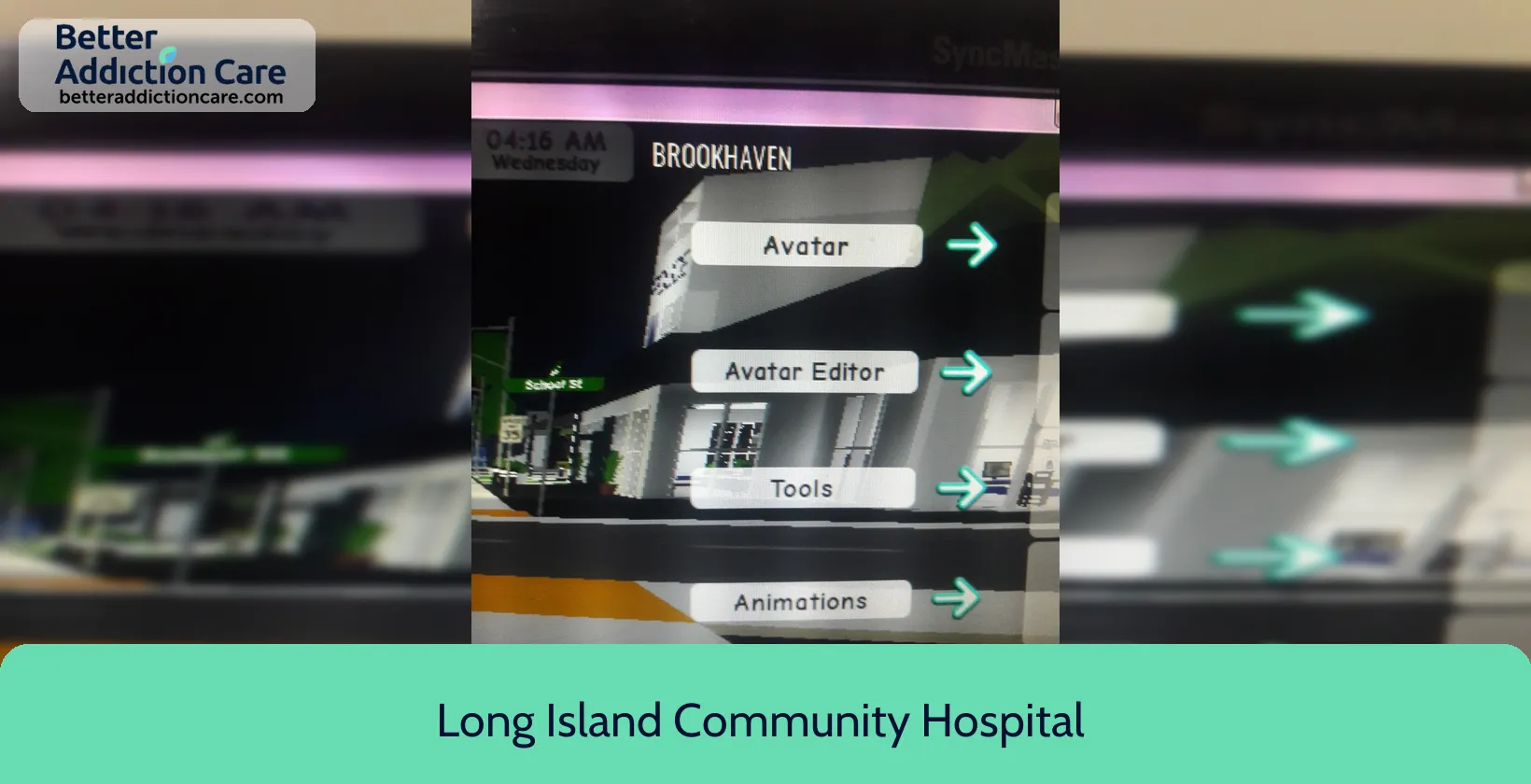Overview
Long Island Community Hospital - 1 East Inpatient Psychiatric Unit is a mental health treatment center for people seeking treatment near Suffolk County. As part of their treatment modalities for recovery, Long Island Community Hospital - 1 East Inpatient Psychiatric Unit provides group counseling, cognitive behavioral therapy, and integrated mental and substance use disorder treatment during treatment. Long Island Community Hospital - 1 East Inpatient Psychiatric Unit is located in Patchogue, New York, accepting cash or self-payment for treatment.
Long Island Community Hospital - 1 East Inpatient Psychiatric Unit at a Glance
Payment Options
- Cash or self-payment
- Medicaid
- Medicare
- State-financed health insurance plan other than Medicaid
- Private health insurance
Assessments
- Screening for tobacco use
- Comprehensive mental health assessment
- Comprehensive substance use assessment
Age Groups
- Young adults
- Adults
- Seniors
Ancillary Services
- Diet and exercise counseling
- Education services
- Family psychoeducation
- Suicide prevention services
Highlights About Long Island Community Hospital - 1 East Inpatient Psychiatric Unit
6.65/10
With an overall rating of 6.65/10, this facility has following balanced range of services. Alcohol Rehabilitation: 8.00/10, Drug Rehab and Detox: 6.00/10, Insurance and Payments: 6.00/10, Treatment Options: 6.61/10.-
Alcohol Rehabilitation 8.00
-
Treatment Options 6.61
-
Drug Rehab and Detox 6.00
-
Insurance and Payments 6.00
Treatment At Long Island Community Hospital - 1 East Inpatient Psychiatric Unit
Treatment Conditions
- Alcoholism
- Mental health treatment
- Substance use treatment
- Co-occurring Disorders
Care Levels
- Hospital inpatient/24-hour hospital inpatient
Treatment Modalities
- Group counseling
- Cognitive behavioral therapy
- Integrated Mental and Substance Use Disorder treatment
- Activity therapy
- Telemedicine/telehealth therapy
Ancillary Services
Languages
- Sign language services for the deaf and hard of hearing
Additional Services
- Pharmacotherapies administered during treatment
- Mentoring/peer support
- Laboratory testing
Contact Information
Read our Most Recent Article About Drug Addiction
DISCLAIMER: The facility name, logo and brand are the property and registered trademarks of Long Island Community Hospital - 1 East Inpatient Psychiatric Unit, and are being used for identification and informational purposes only. Use of these names, logos and brands shall not imply endorsement. BetterAddictionCare.com is not affiliated with or sponsored by Long Island Community Hospital - 1 East Inpatient Psychiatric Unit.
